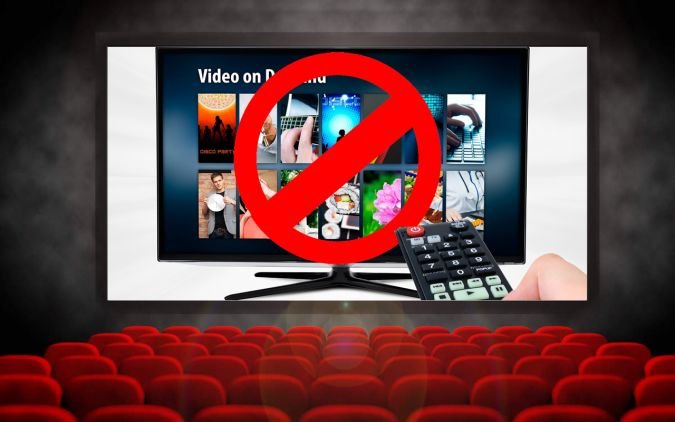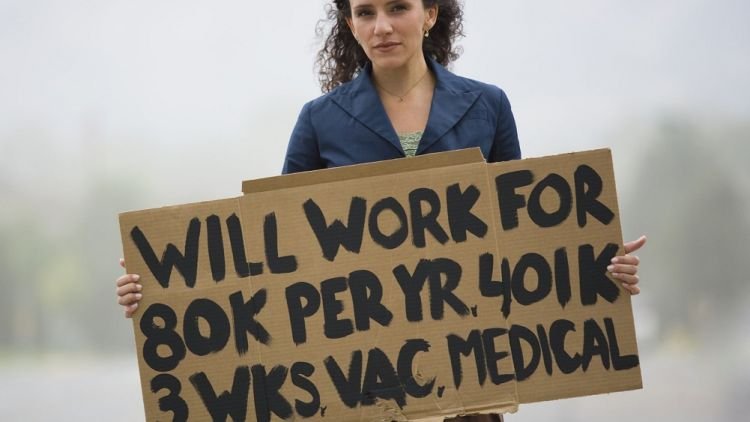Well, well, well, if it isn’t time for another round of the “Karl is right” theory proving true once again. Those of you unaware of this theory, also known as “I’ll be proven right in the end” theory, are where I post something on the internet about a specific topic, talk like I’m wearing a tin-foil hat. Then, in the end, someone or something comes out in the big mainstream media that proves me right in the end. I’ve done it a couple of times before, with my best one being a post about how “Ghostbusters will suck, but not for the reason you think” being confirmed correct once the movie actually hit cinemas to low reviews from myself and the general audience (Unless you’re a shill website that still has bots posting 5 stars, one line, reviews to this day).
So what has been proven correct today? Well, it comes down to the recent meltdown by Hollywood Director Christopher Nolan, the director of the successful Dark Knight Batman movie series and the recent “cinema saving” release Tenet, about Warner Bros Media‘s recent announcement to release the remaining 2020 movie release schedule to their HBO Max streaming service along with a majority of its 2021 release schedule, stating that the services suck and will result in movie makers like himself to stop working with Warner Bros Media to produce future titles. Showing that a lot of what I talked about in my article about studios refusing to release movies to streaming services during a time where cinemas are closed due to a drop in profitability is true in a round-about way. It just wasn’t studios who are afraid; it’s the people working in Hollywood.

What is Christopher Nolan Upset About?
As I stated above, the problem that Nolan has about WB‘s decision to move its entire 2021 movie release schedule, a total of 17 movies (Including predicted “box-office smash hit” features like Wonder Woman 1984, The Suicide Squad, The Matrix 4, Dune, Godzilla vs. Kong, Mortal Kombat, and Space Jam: A New Legacy) to its HBO Max streaming service for a one-month window that starts on the same day that the same movies are due to be released in cinemas worldwide.
In a statement to The Hollywood Insider, Nolan said, “Some of our industry’s biggest filmmakers and most important movie stars went to bed the night before thinking they were working for the greatest movie studio and woke up to find out they were working for the worst streaming service,” and followed up with “Warner Bros. had an incredible machine for getting a filmmaker’s work out everywhere, both in theaters and in the home, and they are dismantling it as we speak. They don’t even understand what they’re losing. Their decision makes no economic sense, and even the most casual Wall Street investor can see the difference between disruption and dysfunction.”
Nolan also told ET Online that Warner Media’s decision to debut films on HBO Max and in cinemas concurrently is “very, very, very, very messy.”
Added the director, “A real bait and switch. Yeah, it’s sort of not how you treat filmmakers and stars and people who, these guys have given a lot for these projects. They deserved to be consulted and spoken to about what was going to happen to their work.”
In the days since Warner Bros.’ December 3 announcement, Hollywood insiders have spoken anonymously with news outlets to voice their disappointment – “Warners has made a grave mistake,” a top talent agent told The Hollywood Reporter – but Nolan is the first industry heavyweight to condemn the streaming push publicly.

Why is Nolan Upset?
The main theory here is that due to Tenet costing over $200 million to produce, then factoring in things like marketing and interest, the film would require $400 million to cover the production costs and around $800 million to fully “break-even” and pay off all the added costs to market the film and then the interest on the money borrowed to make the film, something that is very common in Hollywood.
At this current point since Tenet was released in August, the movie has made a worldwide gross of just over $350 million, running under production cost and well shy of breaking even, making the film a financial flop in the eyes of Hollywood and movie studios alike. Word around the grape-vine is that Nolan is “pissed off” that streaming services are now being favored over cinemas, something he tried hard to get back open during one of the worst periods in human history known as COVID-19, which has closed a majority of cinemas worldwide for periods of and beyond 6 months, with some cinemas only just reopening over the last couple of months (Australian cinemas have only just opened again in late-November after closing in March with reduced numbers). Given that Tenet is now being moved onto the home media market on December 10th, meaning that the “high profitability” time for the film has ended, making Tenet’s status as a “Box Office Bomb” cemented, something that Nolan is not used to seeing, and he has chosen to blame streaming media.
What is the bigger Issue Here?
The bigger issue, according to a lot of Hollywood lawyers, comes from “profit participants” and “residual payments,” two big methods in which actors, directors, and others involved in the production of a movie are paid a percentage of every ticket sale or physical unit sold once a movie is released. The issue comes from the revenue share that would come, or be completely avoided, from streaming services. The difference between the two systems and how they work affects the amount of those two types of payments paid to those who signed the contracts.
When a movie opens in cinemas, due to a higher ticket price that you as a consumer pay, the more money can be made by those actors, directors, and others who have “residual payments” written into their contracts. Seeing as you pay, on average, around $10 for a single ticket to see a movie where the cinema has, on average, 200-250 seats per session at 10 sessions running per day; all adding up to between $20,000 to $25,000 per day per cinema (With 5,869 cinemas in the USA, a potential total ticket taking at $117 million to $146 million per day). Taking this into account, with the maximum per day outlined above, a movie studio takes, on average, 60% of that daily gross ($12,000 to $15,000) goes to the studio, with 20% of that ($2,400 to $3,000) going to a pool for the residual contract payments. So it’s possible that an actor/director with a 3.6% “residual payment” written into their contract can earn upwards of $108 per daily take of the movie, with a total possible of about $16 million per day if their movie sells out at all 5,869 US cinemas. The truth is that this could be a lot less taking things into account like low attendance, amount of sessions per cinema, and how many cinemas play the movie, and diminishing returns after the first $1 million or more in sales. Honestly speaking, it’s probably close to $2 million to $5 million total over a film’s lifespan or something like that… I’m not a Hollywood accountant. Even with that amount in the cinema lifespan of a film, there is also the home media distribution and television runs of the film in which these people are paid for their whole life after the film was made. In the case of popular films, this can go into millions of dollars per year. So safe to say that most actors are pretty well off with these payments.
The same can be said about profit participation conditions in their contracts, which are pretty much the same as “residual payments.” Still, instead of a direct percentage of ticket prices, home media distribution, and TV showings, this other method only comes into effect once the film has made a profit, meaning that once the movie has “broken even” and paid back all the funding that was used to produce, market and distribute the film to the masses. Personally, this is a dumb idea since you’re taking a huge risk in if the movie is profitable or not before you make more money from the project, and even if the film does “Break even,” your percentage of the profits can be tiny, or practically nothing at all. Smart people would opt for “residual payments” over this method, unless you’re like George Lucas and keep a percentage of everything the movie is tied into, something he did with Star Wars, becoming a wealthy man in the process.
What does this all have to do with streaming media, and why people like Nolan are upset? Well, it’s simple, really. Streaming services are new technology and thus are usually not considered when these two contract conditions are included in a contract. Contract conditions are particular, with the wording being a huge part of how studios can get away with paying less to these conditions and keep things legal. Streaming media has been an issue with these contract conditions since the medium has become popular over the last decade. Many contracts do not cover streaming when it comes to actors, and others getting a percentage of each time someone watches their movie through the service.
An example of this comes from a couple of Ex-WWE wrestlers trying to get revenue from the WWE Network. One wrestler, Marcus “Buff” Bagwell, filed a lawsuit against WWE in 2016 for breaking a condition of his WCW contract that states that 5% of all proceeds from sales of WCW Videos would be paid into a WCW talent payment pool to be shared amongst all WCW talent. The keywords here are “video” and “WCW contract” since at the time WCW was around, VHS was the main format of distribution of WCW shows, and all WCW contracts were considered null and void when a wrestler signed a WWE contract after WWE (then WWF) bought out WCW in 1999. The thing that came about from this lawsuit is that things like WWE produced WCW DVDs, and WWE Network streams are not considered a part of Bagwell’s WCW contract, which in itself no longer mattered since Bagwell signed a new contract to work with WWE in 1999.
The second example of this again has to do with the WWE Network and former wrestler Rene Goguen, Rene Dupree in WWE from 2003 to 2007. The difference between his lawsuit and Bagwell’s lawsuit is that Goguen had a clause written into his contract stating that he is entitled to royalties from “technology not yet created.”, this would include the WWE Network, which was created in 2014. However, WWE attorney Jerry McDevitt seems to believe that something the wrestler signed afterward cancels that out. Gardner noted that Devitt reached out to The Hollywood Reporter and explained that “The problem with this lawsuit is that Goguen signed a contract in 2011 that destroys his ability to bring these types of claims.” Once again, streaming somehow avoids paying royalties to someone who worked on a project that now lives in that medium.
Can This Be Changed?
When it comes to contracts, sometimes things take time to be changed and updated. Many laws have to be passed when it comes to things like this to include streaming services as a part of the home media legal term set so it can be included in contracts. However, before we get to the personal end of the inclusion, we need to change the way streaming service contracts, some of them originally being signed when streaming was in its infancy, meaning small percentages being paid to studios due to a lot of studios at the time thinking streaming was going to be a flash-in-the-pan medium that would die easily. This would mean that many contracts would be broken, which could cost studios millions of dollars as there would be conditions written into those contracts that would compensate streaming companies for breaking contract terms early. So it could be a long time before an opening would arrive where these terms can be changed.
Then there is the cost of the percentage itself. Who would be the side to cover the cost? Honestly, it would be the streaming services who would have to cover any costs when it comes to studio revenue, which would increase if the studios would have to start paying things like royalties to actors, etc. This would lead to an increase in prices of streaming services, which totaled up, are starting to rival the cost of cable packages worldwide due to studios and companies starting their own streaming services internally to cut companies like Netflix out of the now popular streaming market (See Disney starting Disney+, WB/AT&T starting HBO Max, etc). This price increase would be passed onto customers, and soon the benefits of having a streaming service would be too high for people to pay, leading to the destruction of the platform.
Who Really Needs To Change?
When it comes to what needs to change, its a few things:
- Cinemas need to go
- Studios need to tighten their belts.
- Actors, Directors, and others need to take a pay cut like the rest of us.
- People like Christopher Nolan need to understand the financial effects of COVID-19 and just chill out.
At the end of the day, studios need to do something, anything, to keep the product flowing during a trying time for the industry. People need entertainment and easy access to that entertainment. While parts of the world are locked down, cinemas are either closed or working at a limited capacity due to the ease in which the locations can spread the virus, or just can’t work properly, streaming is going to be that medium which keeps studios and the industry in general working. It might not be the most profitable for the individual. Still, sometimes a sacrifice needs to be made to keep a business going because without a way to get these movies out to the people, these people are making NOTHING, and it’s better to make something rather than nothing.
Warner Media is leading the way into the future, with a program that allows people (in the US) to view their movies for one month while the same movie is playing in what few cinemas are available in the country or worldwide. To be honest, it’s only for one month, and then the movie disappears from streaming till it’s due to come out in the general home media market alongside DVD & Bluray releases. Sure, the first month might be down a bit in the US Domestic market, where cinemas are closed, but a lot of cinemas will be up and working by the time the next Warner Bros. release comes out in 2021, which will more than make up the difference in the loss the US Domestic market would have. So what’s the problem? Greed. Greed is the problem.
Also, please don’t doubt me when I state something; I’m usually proven right in the end…





